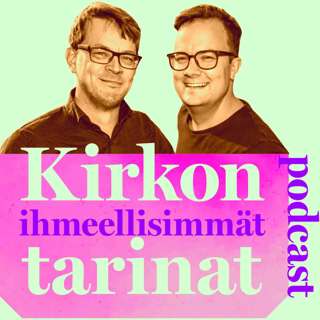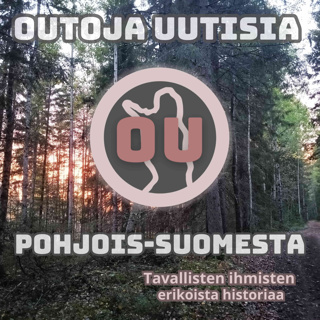
Nineteen Eighty-Four
Melvyn Bragg and guests discuss George Orwell's (1903-1950) final novel, published in 1949, set in a dystopian London which is now found in Airstrip One, part of the totalitarian superstate of Oceania...
13 Loka 202252min

John Bull
Melvyn Bragg and guests discuss the origin of this personification of the English everyman and his development as both British and Britain in the following centuries. He first appeared along with Lewi...
28 Heinä 202253min

Angkor Wat
Melvyn Bragg and guests discuss the largest and arguably the most astonishing religious structure on Earth, built for Suryavarman II in the 12th Century in modern-day Cambodia. It is said to have more...
21 Heinä 202249min

Dylan Thomas
Melvyn Bragg and guests discuss the celebrated Welsh poet, Dylan Thomas (1914 - 1953). He wrote some of his best poems before he was twenty in the first half of his short, remarkable life, and was pro...
14 Heinä 202250min

The Death of Stars
Melvyn Bragg and guests discuss the abrupt transformation of stars after shining brightly for millions or billions of years, once they lack the fuel to counter the force of gravity. Those like our own...
7 Heinä 202258min

Hegel's Philosophy of History
Melvyn Bragg and guests discuss ideas of Georg Wilhelm Friedrich Hegel (1770 - 1831) on history. Hegel, one of the most influential of the modern philosophers, described history as the progress in th...
23 Kesä 202252min

Comenius
Melvyn Bragg and guests discuss the Czech educator Jan Amos Komenský (1592-1670) known throughout Europe in his lifetime under the Latin version of his name, Comenius. A Protestant and member of the U...
16 Kesä 202256min

Tang Era Poetry
Melvyn Bragg and guests discuss two of China’s greatest poets, Li Bai and Du Fu, who wrote in the 8th century in the Tang Era. Li Bai (701-762AD) is known for personal poems, many of them about drinki...
9 Kesä 202246min






















